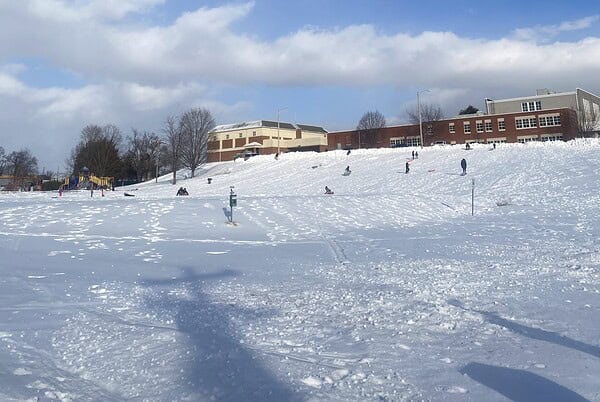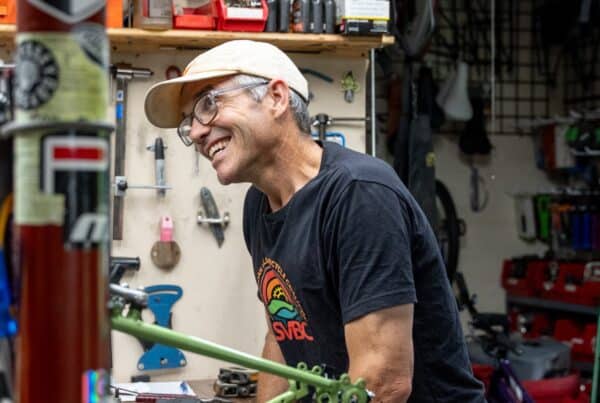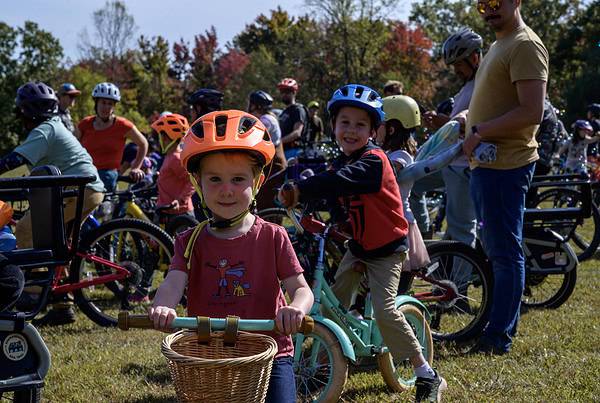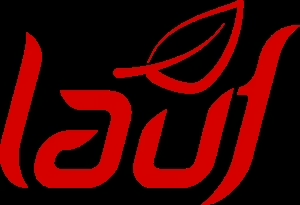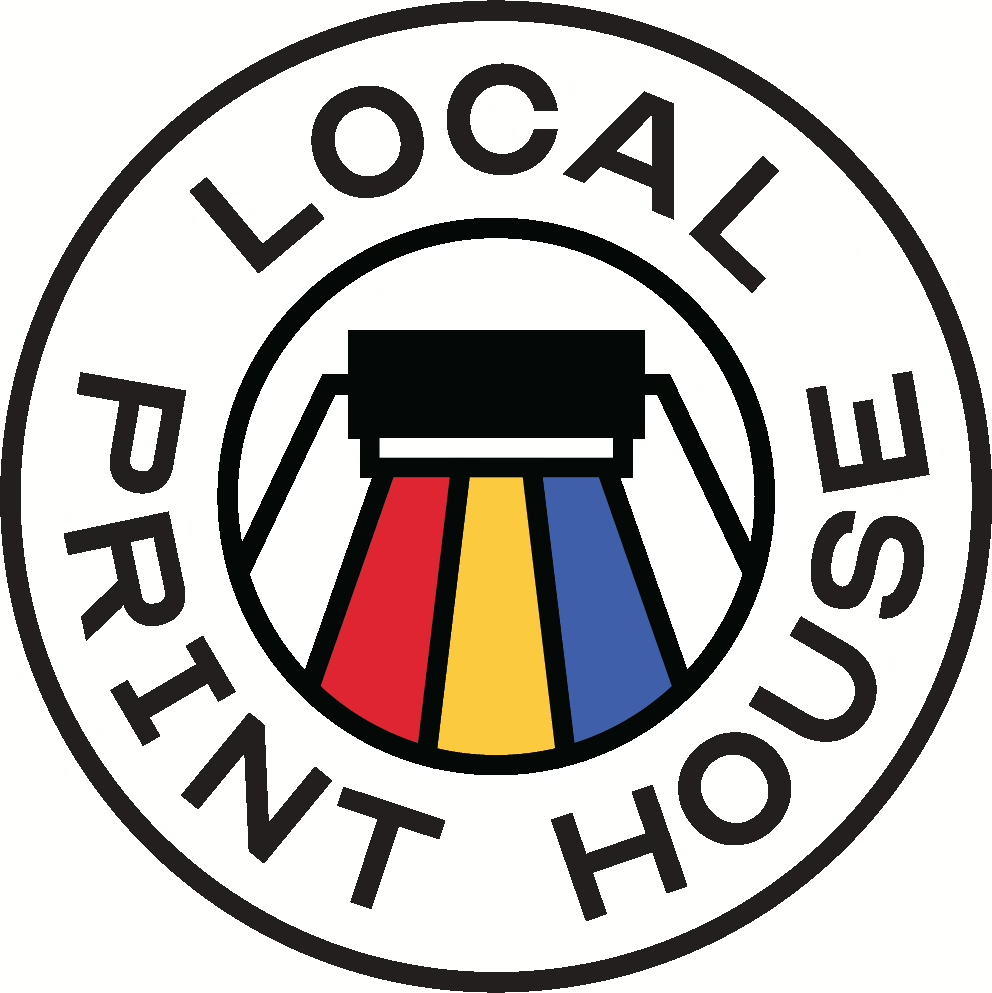As a Coalition, we are committed to addressing systemic racism and affirming that Black Lives Matter. As a predominately white organization, we acknowledge that we (as an organization) have a lot of work to do.
Today, we are committing to affirm our work is actively anti-racist and intentionally ensure the Coalition is a welcoming and safe place for Black, Indigenous, and People of Color (BIPOC).
We believe our communities can be stronger, happier, healthier, and more inclusive only when it is easier, safer, and more convenient for Black, Indigenous, and People of Color to bike and walk as part of daily life.
Our work must address justice, equity, diversity, and inclusion (JEDI). Our work must continue to build more trails, work for more greenways, and continue bicycle-centric initiatives, but we believe our work now must derive new energy towards the inclusion of and support for Black, Indigenous, and People of Color in our communities.
We must intentionally commit to listen, learn, and amplify the voices of those people who have too often been left behind or ignored in much of our work.
What is a bike/walk issue? In order to ensure we don’t leave anyone behind in this work, we must be willing to tackle issues beyond bike lanes and singletrack. Too often, racism precludes Black, Indigenous, and People of Color from experiencing the freedom, and joyful act of bicycling or even safely walking/jogging down the street.
We understand and acknowledge that this work is hard and uncomfortable. Our work has been about more than bicycles for years. More than a “club” we are a Coalition working on issues that are too broad to be boxed in solely by recreational bicycling. Not all of you have been involved in these aspects of our work and may not be aware of all our initiatives. We accept responsibility for not telling these aspects of our story as loudly and often as we should have.
We cannot continue to advocate for better communities if we don’t listen and learn how systemic racism impacts our community at large. Now is the time to listen, learn, and make changes for a better community.
What are we going to do now? We must do more and do better. Here is how we will start:
- Commit to Justice, Equity, Diversity, and Inclusion
- Just because we are a nonprofit and do “good” work does not necessarily mean that we have succeeded in embedding Justice, Equity, Diversity and Inclusion (JEDI) in all of our work. We are committed to ensuring that JEDI are woven into the fabric of the Coalition.
- Our board is committed to an equitable Coalition and will solicit feedback from our membership and the broader community to help inform our Justice, Equity, Diversity, and Inclusion work plan and path forward.
- Actively Learning and Listening
- Educate ourselves and invite our community to learn more about systemic racism and its effects, particularly as it affects transportation and access to the outdoors and our public lands.
- Adopt a Code of Conduct for participating in Coalition events and rides to ensure more people feel safe and included.
- Incorporate Mobility Justice Principles into our work
- Internalize and include the tenets of mobility justice in our work and ensure changes to our public spaces are the result of an inclusive process that addresses JEDI principles.
- Bikes for Refugees Program is in the process of a transition into Bikes for Neighbors where we will aim to provide access to bicycles and education for all those people in our community who might need a bicycle for transportation.
- Share Information and Amplify Voices:
- Look for more action alerts and information from the Coalition in support of anti-racist policies that support or further our ability to build bikeable and walkable communities for everyone.
- Provide space for Black, Indigenous, and People of Color to tell their stories about bicycling, walking, mobility justice, and more.
- Voting! Voting remains one of our most powerful advocacy tools. We will do more to encourage voting, voter registration, and working to better inform voters on candidate positions. You can check your voter registration right here.
- We will help host more candidate forums in the months and years to come
We believe that in order to build better communities, we have to examine our communities and acknowledge the injustice in them. We have to acknowledge the effects of housing discrimination and segregation, of police brutality, of a system that has been influenced by if not outright built on anti-blackness and white supremacy, and how these have produced the communities we currently have. We can’t make our communities better until we address the systemic racism that has shaped our daily lives.
Reach out to us. Share your ideas and hopes for a better world and push us to be better and to truly live up to our mission to Build Better Communities in the Valley.
What we are reading, watching, and sharing:
- Why We Must Talk About Race When We Talk About Bikes – “Bicycling cannot solve systemic racism in the United States. But systemic racism can’t be fixed without tackling it within bicycling.” (Online Bicycling Magazine article)
- Melanin Base Camp Guide to Outdoor Allyship -Melanin Base Camp works to increase the visibility of outdoorsy black, indigenous, people of color, to increase their representation in the stories we tell ourselves about the Outdoors. (Online resource)
- Transportation “Planning While Black” by Tamika Butler – Keynote at the 2016 NACTO Conference (Youtube video)
- BIPOC Bikepacking Adventure Grant – Bikepacking Roots’ new grant program created to help reduce the barriers to bike adventure for BIPOC individuals. (Grant opportunity)
- Camber Outdoors The What and Why of (JEDI) Justice Equity Diversity Inclusion (Webinar)
- Untokening 1.0 — Principles of Mobility Justice – Mobility Justice demands that “safety” and equitable mobility address more than the construction of our streets (online resource)
- Bike Advocacy’s Blindspot Adonia Lugo Ph.D. (interview with CityLab)
Activists and Organizations we’re following to learn more:
- The Untokening – a multiracial collective that centers the lived experiences of marginalized communities to address mobility justice and equity.
- Tamika Butler – Toole Design’s Director of Planning for California and the Director of Equity and Inclusion
- Veronica Davis – (Keynote speaker at our 2016 Harrisonburg & Rockingham Bike-Walk Summit) Planner and Engineer. Owner of DC-based planning firm Inspire Green
- Keith Benjamin – Director of Charleston Department of Traffic & Transportation
- Dr. Adonia Lugo – Urban anthropologist and mobility justice strategist based in Los Angeles
- Ayesha McGowan – the first African-American female pro road cyclist
- Naomi Doerner – nationally recognized transportation equity strategist
- Charles T. Brown, MPA, CPD – self-proclaimed “street-level researcher,” working at the intersection of transportation, health, and equity
| We Invite you to join us |
